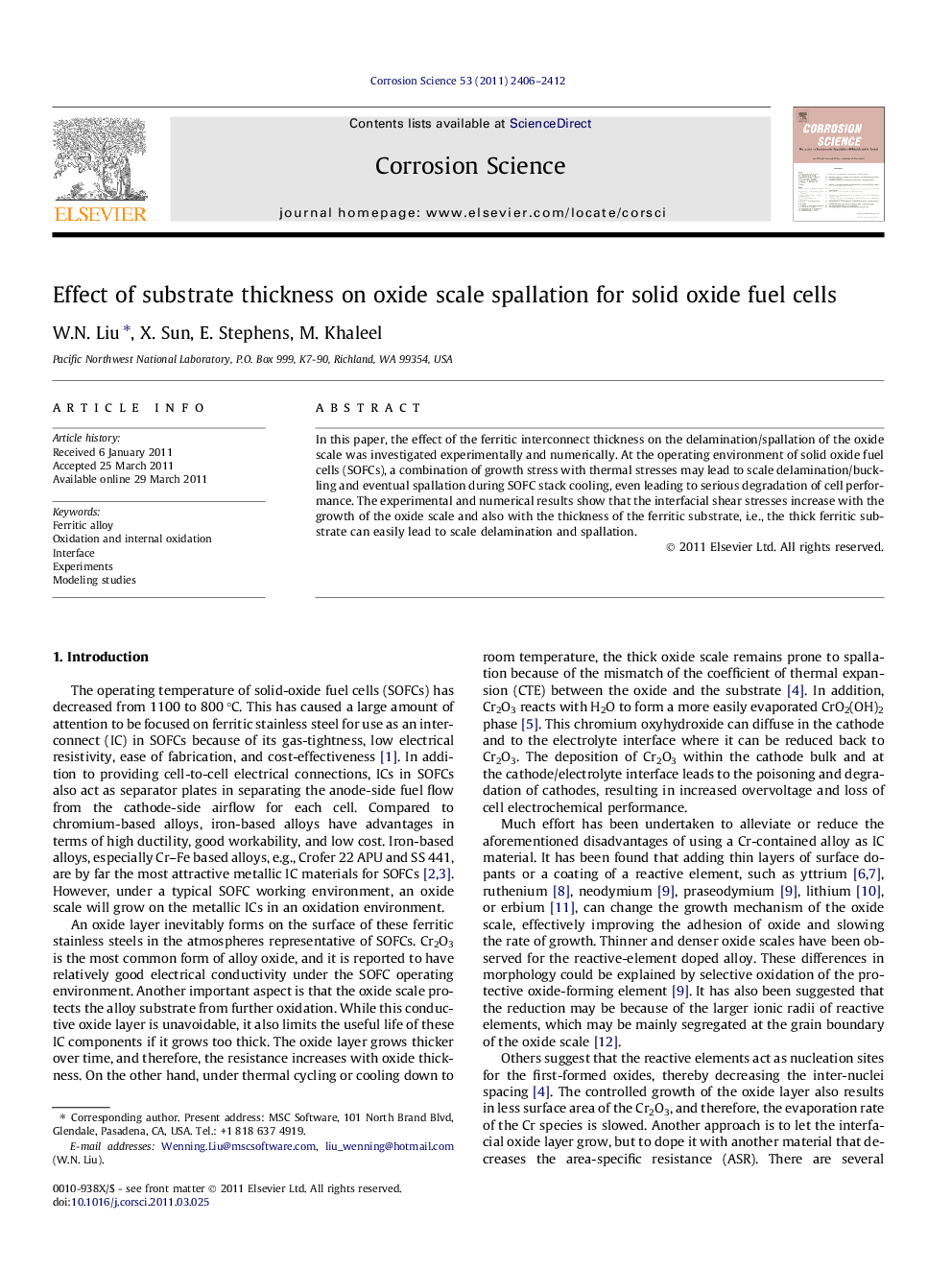| Article ID | Journal | Published Year | Pages | File Type |
|---|---|---|---|---|
| 1470000 | Corrosion Science | 2011 | 7 Pages |
In this paper, the effect of the ferritic interconnect thickness on the delamination/spallation of the oxide scale was investigated experimentally and numerically. At the operating environment of solid oxide fuel cells (SOFCs), a combination of growth stress with thermal stresses may lead to scale delamination/buckling and eventual spallation during SOFC stack cooling, even leading to serious degradation of cell performance. The experimental and numerical results show that the interfacial shear stresses increase with the growth of the oxide scale and also with the thickness of the ferritic substrate, i.e., the thick ferritic substrate can easily lead to scale delamination and spallation.
► Maximum shear stress between oxide scale and SS 441 substrate increases with thicknesses. ► Increasing of shear stress with substrate indicates thicker IC is easier to spall. ► Normal compressive stress in the oxide scale increases with substrate thickness. ► Scale compressive stress decreases with scale thickness, i.e., oxidation time. ► The overall level of the compressive stress in the scale remains high, ∼2 GPa.
